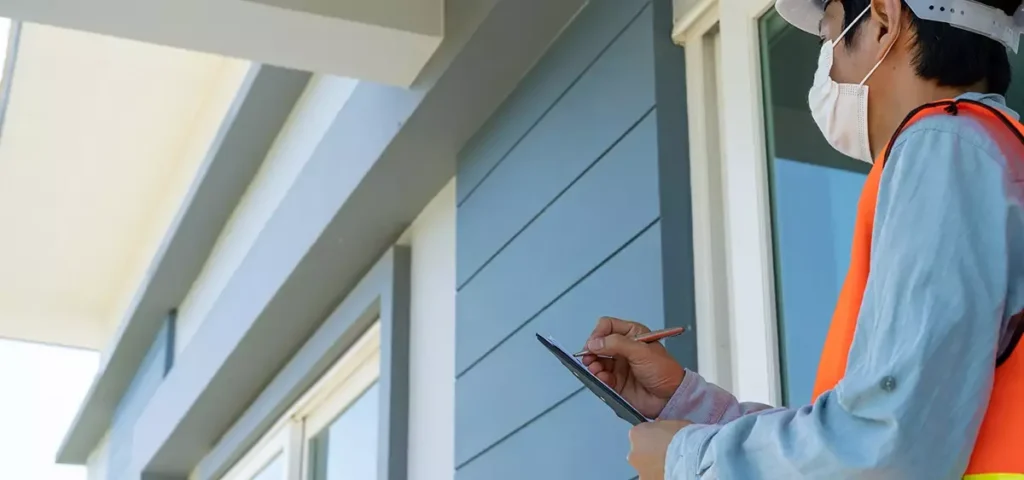Do you want to learn the importance of property inspection before purchase? As you keep reading, you will get to know the importance of property inspections before purchase.

Buying a property is a major financial decision, whether it’s for personal living or investment. While a land or home may look perfect on the surface, hidden issues can turn your dream purchase into a costly nightmare.
That’s where property inspections come in. A professional inspection goes beyond the fresh paint and polished floors to uncover potential problems that may not be immediately visible.
From structural integrity to legal compliance, conducting an inspection before you buy helps you make an informed and confident decision.
7 Importance of Property Inspections Before Purchase

Here are 7 key reasons why a property inspection is absolutely essential before finalizing your purchase.
1. To Help You Uncover Hidden Defects
Inspections help detect issues that aren’t obvious at first glance. With land, this might include poor soil quality, waterlogging, or unclear boundaries.
For off-plan properties, it’s about reviewing the developer’s track record, building materials, and architectural plans. Verifying these details ensures you don’t buy land unsuitable for construction or invest in a substandard project.
Spotting these hidden issues early protects your finances and guarantees that your land or property investment will serve its intended purpose without major post-purchase surprises.
2. It Gives You Insight to Structural Quality and Integrity
For off-plan properties, inspecting the developer’s model units and construction site gives insight into structural quality.
Request updates and documentation throughout the build phase. For land, examine the terrain and environmental conditions to ensure it’s suitable for future development.
If a site is prone to erosion, flooding, or has unstable ground, you’ll want to know before committing. A professional evaluation ensures your land can safely support construction and that off-plan projects will meet durability standards upon completion.
3. It Helps You Understand The Value of Your Money
Land and off-plan inspections help you understand what you’re really paying for. With land, assess access roads, proximity to infrastructure, and future zoning plans.
For off-plan, analyze unit specifications, completion timelines, and finishing quality. If an inspection reveals shortcomings or risks, you can negotiate price reductions, demand upgrades, or request better terms.
This due diligence ensures that your investment is aligned with the price and projected value, preventing you from overpaying for either undeveloped land or uncompleted property.
4. It Helps You Plan for Future Maintenance or Development
Knowing the current condition and potential of the land or off-plan unit helps you plan for future expenses. Land buyers can budget for fencing, clearing, or soil treatment.
Off-plan buyers can anticipate timelines for utility connections, finishing stages, and maintenance of new systems.
Understanding what’s ahead allows you to plan your finances effectively and avoid being blindsided by costs. Inspections offer a roadmap for turning land into a usable site or preparing for occupancy of an off-plan home.
5. It Ensures You That the Land Has a Clean Title
An inspection helps ensure that the land has a clean title and is zoned for your intended use, residential, commercial, or mixed-use.
For off-plan, it verifies that the developer has obtained necessary building approvals and is following local regulations. It also checks if the project is registered with the appropriate housing authorities.
This protects you from investing in properties that may later face demolition, fines, or legal disputes due to regulatory non-compliance.
6. It Helps You to Improve Negotiation Power
If inspections reveal any red flags, such as encroachments on land, lack of access roads, or poor construction quality, you can use that information to negotiate better terms.
This might mean getting the seller to rectify issues, reduce the price, or offer flexible payment plans. For off-plan deals, you can demand clearer timelines or additional guarantees from the developer.
With factual evidence from an inspection, you’re in a stronger position to protect your interests and secure better value.
7. Thorough Inspection Brings Peace of Mind
A thorough inspection brings peace of mind whether you’re buying land for future development or an off-plan unit to live in or rent out.
It assures you that your investment is legally sound, structurally feasible, and free of unpleasant surprises. With rising real estate scams and construction failures, a simple inspection can save you from major losses.
Knowing you’ve done your due diligence means you can proceed with confidence, fully aware of what you’re investing in.
Frequently Asked Questions

1. Why is Property Inspection Necessary Before Buying a Property?
Property inspection for land helps identify issues like poor soil quality, waterlogging, unclear boundaries, or lack of access roads.
It also ensures the land is free from encroachments and suitable for your intended use, whether residential, commercial, or agricultural.
2. Can I Inspect an Off-plan Property That Isn’t Completed Yet?
Yes. You can inspect model units, building plans, developer portfolios, and construction progress.
You should also review legal documents, building approvals, and project timelines. This gives insight into the developer’s credibility and the quality of the future property.
3. Who Should Conduct the Inspection for Land or Off-plan Property?
Hire professionals like land surveyors, structural engineers, or certified property inspectors. For legal verification, consult a real estate lawyer to confirm titles, permits, and compliance with local regulations.
4. What Documents Should I Request During an Inspection?
For land: survey plan, deed of assignment, title (C of O or R of O), and zoning details.
For off-plan: building approvals, developer’s license, project timeline, architectural drawings, and payment schedule.
5. What Happens if the Inspection Reveals a Problem?
If issues are discovered, you can renegotiate the price, request corrections, or withdraw from the deal. A good inspection report gives you leverage to protect your investment and avoid financial losses.
Related Post:




